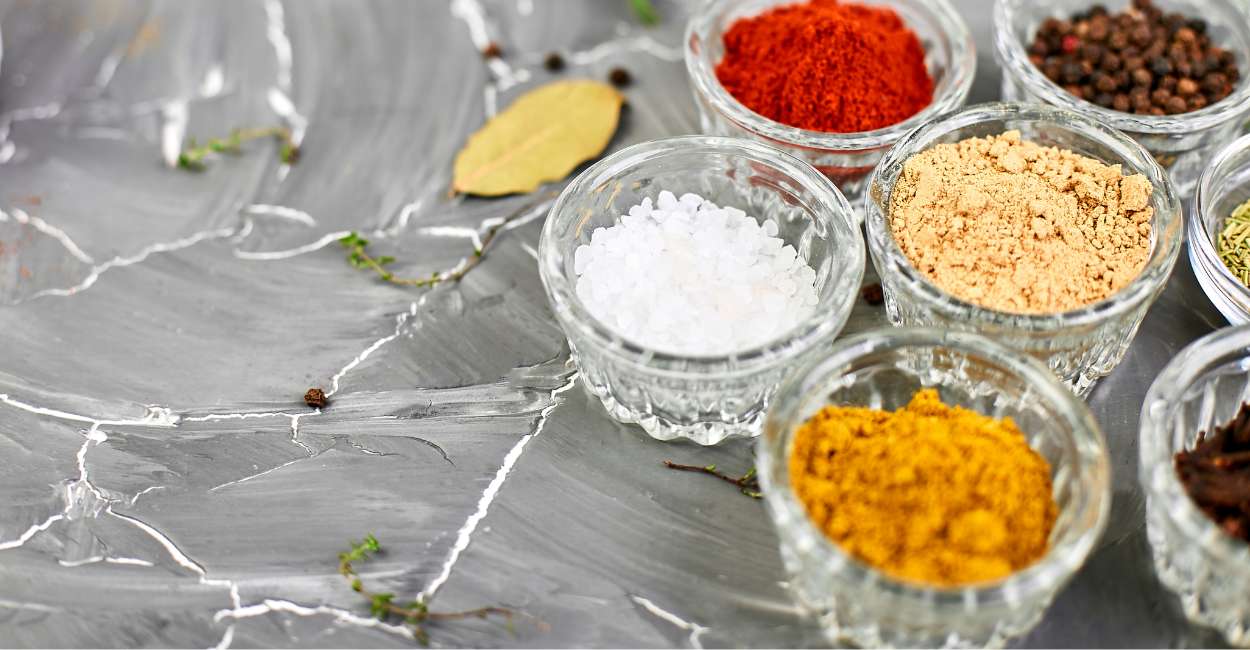
Preserving fresh herbs with salt and spices is a centuries-old technique that not only extends the shelf life of these aromatic wonders but also intensifies their flavors. In this comprehensive guide, we’ll delve into the art of preserving herbs, exploring different methods, essential ingredients, and creative recipes to enhance your culinary experience.
Why Preserve Fresh Herbs?
Fresh herbs bring vibrancy and depth to dishes, but their short shelf life can be a challenge. Preservation with salt and spices not only prevents wastage but also captures the essence of herbs, allowing you to enjoy their flavors year-round. This technique creates herb-infused salts, blends, and condiments that can elevate your cooking to new heights.
Methods of Preservation:
- Herb-Infused Salts:
- Ingredients: Fresh herbs (rosemary, thyme, basil), coarse salt.
- Process: Combine finely chopped herbs with salt, air-dry or use a dehydrator, and store in airtight containers. Ideal for seasoning and finishing dishes.
- Flavored Vinegars:
- Ingredients: Fresh herbs (dill, tarragon, mint), vinegar.
- Process: Pack herbs into sterilized jars, heat vinegar, and pour over herbs. Seal and let infuse for a few weeks. Perfect for salad dressings and marinades.
- Herb-Infused Oils:
- Ingredients: Fresh herbs (rosemary, thyme, garlic), quality oil.
- Process: Blanch herbs, combine with oil, and let infuse in a cool, dark place. Strain and use for cooking or as a dipping oil.
- Herb Butters:
Essential Ingredients:
- Salt:
- Purpose: Acts as a natural preservative and enhances the herb’s flavors.
- Types: Sea salt, kosher salt – choose based on preference.
- Spices:
- Purpose: Adds complexity and depth to the preserved herbs.
- Examples: Peppercorns, coriander seeds, cumin – experiment for unique blends.
- Acids:
- Purpose: Used in vinegar-based preservation methods.
- Examples: White wine vinegar, apple cider vinegar – add a tangy note.
Creative Recipes:
- Mediterranean Herb Salt:
- Ingredients: Rosemary, thyme, oregano, sea salt.
- Process: Combine chopped herbs with sea salt, air-dry, and store. Perfect for seasoning grilled meats and roasted vegetables.
- Citrus-Infused Herb Vinegar:
- Ingredients: Basil, mint, lemon zest, white wine vinegar.
- Process: Pack herbs and zest in a jar, pour warmed vinegar, and let infuse. Ideal for refreshing salad dressings.
- Garlic and Herb Butter:
- Ingredients: Parsley, chives, garlic, unsalted butter.
- Process: Blend herbs and garlic into softened butter, roll, and refrigerate. Elevate the flavor of grilled steaks or vegetables.
Storage and Usage Tips:
- Airtight Containers:
- Importance: Prevents exposure to air, maintaining freshness.
- Recommendation: Use dark, glass containers for herb-infused oils to protect from light.
- Labeling:
- Importance: Ensures easy identification of preserved herbs.
- Tip: Include the preservation date and suggested uses.
- Temperature Control:
- Importance: Some methods require cool, dark storage.
- Guideline: Herb-infused oils are best stored in the refrigerator to avoid spoilage.
Conclusion:
Preserving fresh herbs with salt and spices is not just a method; it’s an exploration of flavors. Whether you’re a culinary enthusiast or a home cook, this technique offers a spectrum of possibilities to enhance your dishes. Experiment with different herbs, spices, and methods to create your signature blends, and let the essence of fresh herbs enrich your culinary creations.
FAQs:
Q: Can I use any type of salt for herb-infused salts?
A: Yes, you can experiment with different salts based on your preference. Coarse sea salt adds a crunchy texture, while kosher salt offers a clean taste.
Q: How long do herb-infused oils last?
A: Herb-infused oils can last up to a month when stored in the refrigerator. Always check for signs of spoilage, such as off odors or cloudiness, before use.
Q: Are there herbs that are not suitable for preservation with salt and spices?
A: Delicate herbs like cilantro and basil can be challenging to preserve, and their freshness may diminish. It’s advisable to experiment cautiously with these herbs.
Q: Can I use flavored vinegars interchangeably in recipes?
A: Yes, you can substitute flavored vinegars in various recipes to add depth. However, consider the specific flavor profile of the herb-infused vinegar when making substitutions.
Q: How do I prevent herb-infused oils from spoiling?
A: Storing herb-infused oils in the refrigerator helps prevent spoilage. Use dark, glass containers to protect the oils from light exposure, and always check for freshness before use.
Q: Can I preserve herbs with just salt, or do I need to add spices?
A: While salt is a natural preservative, adding spices enhances the complexity of flavors. Experimenting with spice combinations allows you to create unique and flavorful herb preserves.
Q: Are there any safety considerations when preserving herbs with salt and spices?
A: Ensure that the herbs are thoroughly cleaned and dried before preservation. Use sterilized containers and follow recommended storage guidelines to prevent contamination.
Q: Can I mix different herbs together for preservation, or should I preserve them separately?
A: Mixing herbs for preservation can create interesting blends. However, consider the compatibility of flavors to achieve well-balanced combinations. It’s also possible to preserve herbs separately for distinct flavors.
Preserve the essence of herbs, savor the richness of flavors, and embark on a culinary journey with preserved herbs enhanced by the alchemy of salt and spices. Happy preserving!
Read More – How Long Do Dried Herbs Last?
